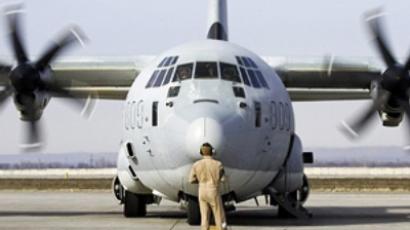What has become of Western promises?
Fifteen years ago, Russia completed the withdrawal of its forces from East Germany. Though Moscow’s ambitions to provide both its own and Europe's security by creating a new inclusive system never came to reality.
Igor Maksimychev, former Soviet ministerial counsel in the GDR from 1987 to 1992, says that
“The previous security system in Europe proved ineffective and, in order to create one, the Soviet authorities, including Gorbachev, offered on several occasions the creation of a united system of security in Europe. Everyone understood the need for it, but nothing was done.”
At the time, the German Democratic Republic was the Soviet Union’s primary line of defense in Europe. This is how the 500,000-strong contingent in East Germany could have been best described. Following the country’s post war division, Soviet troops occupied the eastern part of Germany, while allied forces were stationed in the West.
Retired Soviet Army officer, Viktor Chubenets, who served in the Soviet Army’s rocket forces in East Germany back in the 1970s, recalls his decade in Europe as the best time of his life, though admits it was not a walk in the park.
“We had a 12-hour working day, and the general approach to our work was so serious that we were supposed to be in full military readiness within 30 minutes should something happen,” remembers Viktor.
When the Cold War began, it was in Berlin where the confrontation between the superpowers was most visibly seen. At times, the two bloc’s armies stood at gunpoint over the Berlin Wall.
But as the Perestroika winds of change started to blow in Moscow, the Berlin Wall fell in 1989. With its demise came an agreement, signed by Mikhail Gorbachev and Helmut Kohl, for the USSR voluntarily to end its military presence. It was left to his successor Boris Yeltsin to celebrate the final withdrawal five years later.
Half-a-million Soviet soldiers came home in the biggest ground military move in post war history. And there were so many of them that West Germany’s government even financed the construction of housing back in Russia.
Many historians agree the pullout of Soviet forces from East Germany was inevitable. The Kremlin, during the times of Perestroika, regarded it as a necessary concession. However, Moscow expected something in return from the West, which up to this day it believes still has never been received.
There was a certain unwritten agreement made by the Cold War leaders. Gorbachov promised to withdraw Russian forces only in the case that NATO wouldn’t expand to the east. But this promise was broken.
“The Soviet Foreign Ministry insisted that all forces must pull out of Germany, including the NATO forces. It would have been logical. But this did not happen,” ex-Soviet ministerial counsel in GDR, Igor Maksimychev, points out. “Gorbachev had a soft policy and did not demand anything. If only they had put the NATO non-expansion condition on paper, then many modern-day tensions could have been avoided.”
15 years on since the historic pullout, which some say brought a massive blow to Russia’s own security in Europe, President Medvedev has again raised the idea that never worked for Gorbachev: to build a collective security system for the entire continent. The OSCE has approved of the initiative, however, on a practical level, those in charge of politics in the EU still seem to be thinking it over.













